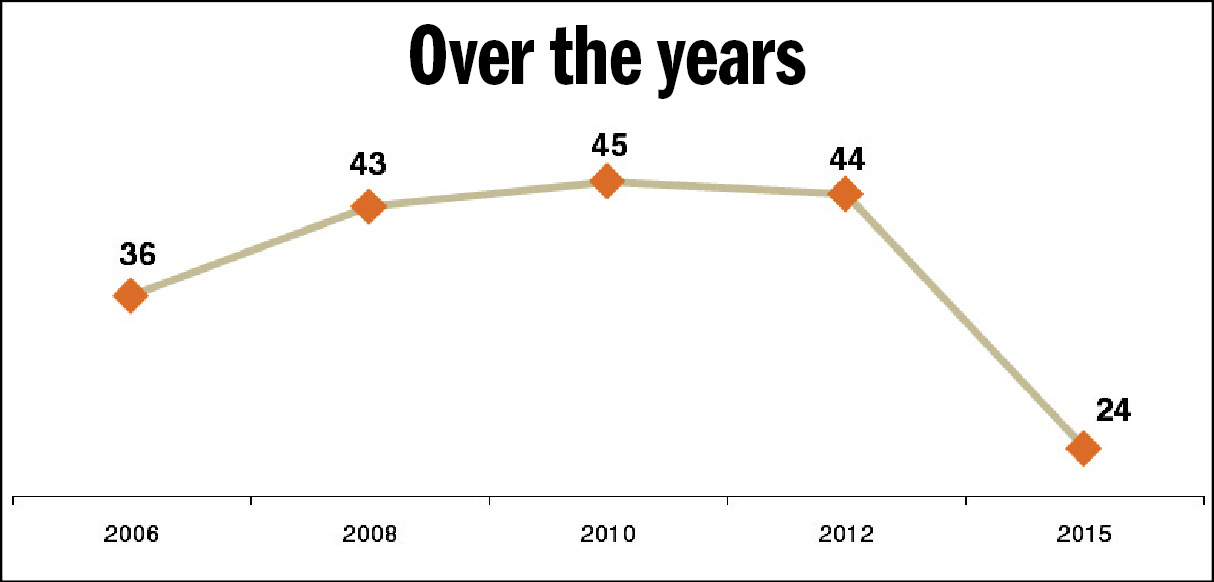Country’s score in budget transparency plummets to 24
Kathmandu, November 24
Nepal’s score in terms of transparency and accountability with its national budget has plummeted to 24 out of 100. The country’s score in the 2015 Open Budget Index (OBI) is substantially lower than its score in 2012, when the country scored 44 out of 100.
The biennial report released by an international civil society organisation, International Budget Partnership (IBP), has identified that the government is weak in providing the public with opportunities to engage in budget process. It also pointed out the weak performance of the legislature in budget oversight. However, the report has said that the country’s budget oversight by the supreme audit institution is adequate.
The overall transparency and accountability index slipped in the last two years as there was absence of parliament and the government was run by former bureaucrats, who unveiled the budget for fiscal 2013-14. The report has said, however, that the regression in transparency observed in Nepal ‘appears to be temporary in nature’.
The research period in Nepal ended on June 30, 2014. The IBP conducts the survey based on the internationally accepted criteria developed by the International Monetary Fund, Organisation for Economic Cooperation and Development, and International Organisation of Supreme Audit Institutions (INTOSAI). The Open Budget Survey for Nepal was carried out by Freedom Forum.
While comparing the score achieved by the SAARC countries (that was included in the survey), Bangladesh has performed high with a score of 56, India (46), Pakistan (43), Afghanistan (42) and Sri Lanka (39). Nepal has received minimal score as compared to the global average score of 46.
New Zealand ranked at the top in the open budget index with a score of 88. Sweden with a score of 87, Norway with 84, the United States with 81 and United Kingdom with 75 rounded up the top five among the 100 countries surveyed for budget transparency. Between 2012 and 2015, the average OBI score for 100 countries for which comparable data are available rose from 43 to 46.
IBP has made some crucial recommendations to improve Nepal’s ranking and ensure transparent and accountable budget. It has suggested to consistently publish the executive’s budget proposal in a timely manner, produce and publish pre-budget statements and increase comprehensiveness of the year-end report by presenting more details on planned versus actual debt and interest and also planned versus actual macroeconomic forecast.
For the improved participation, the country needs to prioritise credible and effective mechanisms like public hearings, surveys and focus groups for capturing the range of public perspectives on budget matters. IBP has also suggested legislative hearings on budget-specific ministries, departments and agencies and establishing a formal mechanism for the public to assist the supreme audit institutions to formulate its audit programme.






